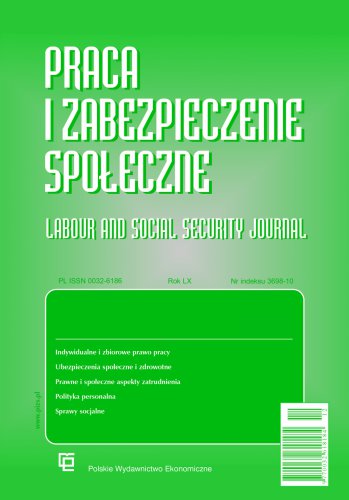Taxation of cross-border workers
Workers earning temporarily income outside their residence state are conventionally referred to as crossborder workers. The taxation of cross-border workers is regulated by tax treaties, which determine the state in which income is taxed, and by national law, which determines the amount of tax and the rules for its collection. On the basis of treaties, the remuneration of a cross-border worker will be taxed either only in the residence state or both in the residence state and in the state where the employment is exercised. If the three conditions relating to the length of the employee's stay abroad, the residence of the paying employer and the non-payment of this remuneration by the employer's permanent establishment are met, the remuneration is taxed only in the residence state of the employee. If at least one of these conditions is not met, the state where the employment is exercised and the residence state have the right to tax remuneration, which results in double taxation and the need for the latter state to use one of two methods of avoiding it: the exemption method or the tax credit method. Recently, Polish tax treaties have been amended through the MLI convention, as a result of which the exemption method is replaced by a tax credit method that is less favorable to the taxpayer. At the same time, the so-called abolition relief, which eliminated the differences between these methods, was limited in amount from 2021. The amount of tax in Poland as the residence state of an cross border worker and as a source state for an employee who is a tax non-resident is regulated by the Personal Income Tax Act, with few regulations regarding the status of a cross-border worker. In the case of non-residents, they mainly relate to the rules of tax collection. In the case of residents, apart from favorable solutions (exemption from taxation due to the deduction of allowances for stay abroad), it is worth pointing out to the case-law unfavorable for taxpayers, according to which the employee's income is the expenses incurred by the employer, in particular for paying for the apartment (accommodation) during stay of an employee abroad.
References
Bibliografia/References
Lewandowski, K. i Koperska, A. (2021). Czy ograniczenie ulgi abolicyjnej zmniejszy liczbę pracowników mobilnych. Rzeczpospolita z 4 stycznia 2021 r.
Litwińczuk, H. (2020). Międzynarodowe prawo podatkowe. Warszawa.
Marciniuk, J. (red.). (2015). Podatek dochodowy od osób fizycznych. Komentarz. Warszawa.
Missala, W. (2021). Ograniczenie ulgi abolicyjnej i inne zmiany w opodatkowaniu dochodów osiąganych przez polskich rezydentów za granicą. Przegląd Podatkowy, (3).
Oats, L., Miller, A. i Mulligan, E. (2017). Principles of International taxation. London.
OECD (2017). Model Tax Convention on Income and on Capital: Condensed Version 2017. OECD Publishing.

